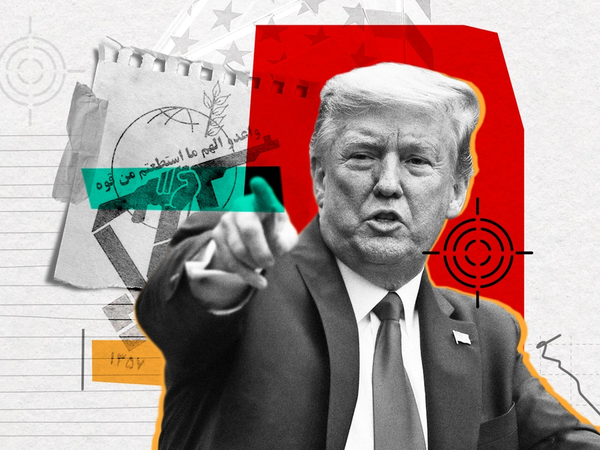Politicians in Tehran seem optimistic about the possibility of restoring ties with the US after Donald Trump's election victory, with some volunteering to initiate talks regardless of their status and rank.
Ahmad Ajam, a member of the Iranian parliament who secured his seat with a modest share of votes in his constituency, is among those eager for dialogue. He has even proposed including a cease-fire in Gaza and Lebanon as a topic for talks, disregarding the risks faced by higher-ranking politicians who have suggested negotiations with US officials without the prior approval of Supreme Leader Ali Khamenei.
Foreign Minister Abbas Araghchi faced serious backlash after rumors emerged that Iran's chief diplomat in New York, Saeed Iravani, had engaged in secret talks with Trump advisor Elon Musk and even promoted investment in Iran. The hardliner daily *Kayhan*, closely aligned with Khamenei's office, sharply criticized Araghchi and went as far as accusing him of treason.
The news of the meeting, shared with The New York Times by two unnamed Iranian officials, was likely an attempt to gauge reactions from Khamenei and the IRGC, the key power brokers in Iran's government, to see if they would support or oppose the proposal. Critics also accused Araghchi of being complicit with former Foreign Minister Javad Zarif, who negotiated the 2015 nuclear deal, which hardliners claimed primarily benefited the West.
On Sunday, 207 of Iran's 290 lawmakers approved the urgency of a bill calling for the dismissal of officials like Javad Zarif, whose children allegedly hold US citizenship. Iranian media report that the bill is specifically aimed at Zarif within the government.
Amid this, Ebrahim Asgharzadeh, a leader of the 1979 US embassy takeover in Tehran, in which over 50 US diplomats were held hostage, told a Tehran news outlet that "with or without negotiations with Trump, time is against Iran."
Asgharzadeh emphasized that "only innovative talks on equal footing with the United States can shift the situation in Iran's favor," while noting that "even confidence-building with China and Russia is no longer sufficient to help Iran." Now regarded as a Reformist figure, he reiterated that "dismantling the security net surrounding Iran could potentially end its dangerous isolation and pave the way for the country’s development."
He further warned that "provocative slogans and ambitious claims will surely rally the world's public opinion against us." A good example of such provocations and ambitions was Kayhan’s article that said, "If rumors about the meeting between Musk and Iravani were true, it would have been a dangerous and damaging development that would have undermined Iran's dignity and authority."
Kayhan previously accused Reformists and centrists in Iran of attempting to portray Trump as having changed since 2016, suggesting that engaging in talks with him could be Iran's path out of isolation. The publication claimed that US administrations are convinced they can extract concessions from Iran by encouraging Iranians to rise against their government, as seen in the numerous protests since 2018.
In his interview, Asgharzadeh warned that time is running out and that persisting with outdated policies will not benefit Tehran. He emphasized that Iran's primary challenge lies with the United States, a conflict he believes poses a threat to the Islamic Republic's very existence. Asgharzadeh noted that in its dispute with the US, Iran adopts a confrontational stance toward a third country, Israel, while simultaneously advocating for the rights of a fourth, the Palestinians.
The reformist figure argued that while Iran claimed President Masoud Pezeshkian's victory in the July election signaled a shift toward change and readiness for rapprochement with the West, the decision to invite Hamas leader Ismail Haniyeh to his inauguration undermined that message.
He observed that Trump aims to establish a new order in the Middle East and cautioned that, under the current circumstances, any action provoking a US military strike on Iran could devastate the country's economy and infrastructure, potentially triggering a domestic revolt. Instead, he advocated for a strategy of creative diplomacy to minimize the risk of military aggression against Tehran.
